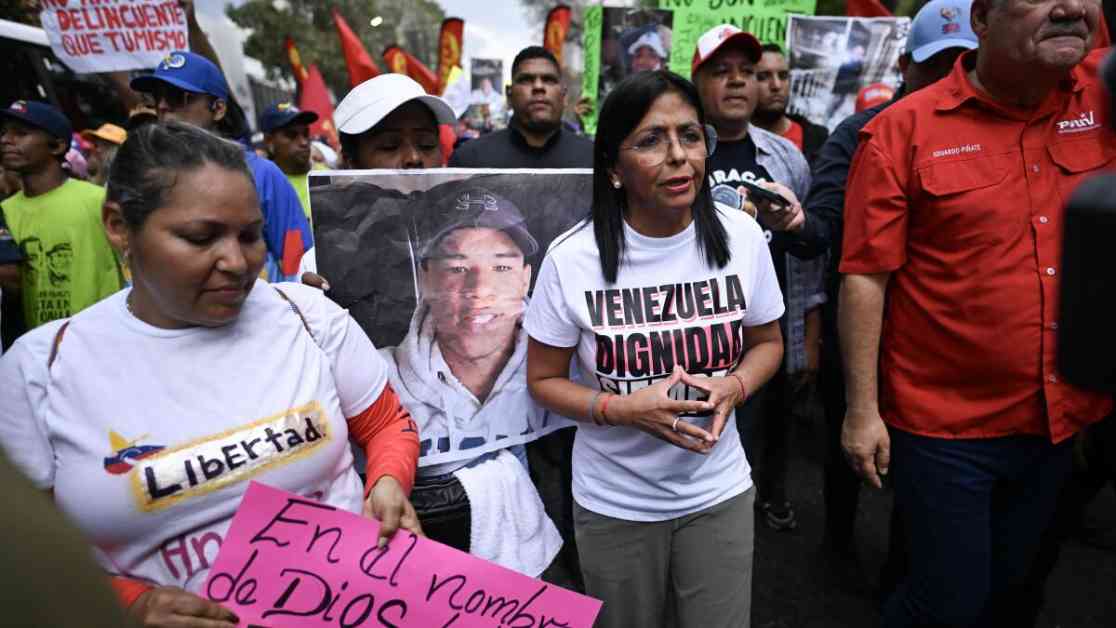Families Speak Out: Injustice of Deporting Tattooed Individuals
Two individuals, a former professional soccer player and a social media influencer, were recently deported from the United States to El Salvador. This action sparked outrage and concern among their families, who are now grappling with uncertainty and fear for their loved ones. The stories of Jerce Egbunik Reyes Barrios and Nolberto Rafael Aguilar Rodríguez shed light on the challenges faced by many migrants seeking refuge in the United States.
Deportation from the United States to El Salvador
Jerce Egbunik Reyes Barrios, a former professional soccer player from Venezuela, and Nolberto Rafael Aguilar Rodríguez, a social media influencer, were among a group of individuals deported from the United States to El Salvador. The deportation was part of a broader effort by the Trump administration to crack down on alleged gang members entering the country.
Reyes Barrios and Aguilar were detained in California and deported to El Salvador, where they are now imprisoned. Their families have expressed deep concern and frustration over the lack of information about their well-being and the conditions of their detention in El Salvador. The families of the deportees have been left in the dark, unsure of what the future holds for their loved ones.
The Trump administration’s decision to outsource the detention of migrants to El Salvador has raised serious concerns among experts and human rights advocates. Regina Bateson, a political scientist at the University of Colorado Boulder, described the move as creating a “tropical gulag” in El Salvador. The decision to deport alleged gang members to a country with a repressive prison system has been met with widespread condemnation and calls for accountability.
Challenges Faced by Deportees and Their Families
The deportation of Reyes Barrios and Aguilar highlights the complex and often unjust nature of the U.S. immigration system. Both individuals were seeking asylum in the United States, fleeing persecution and violence in their home country. However, they were met with suspicion and accusations of gang affiliation based on flimsy evidence such as tattoos and social media posts.
Reyes Barrios, in particular, has been portrayed as a law-abiding individual with no criminal record. His attorney, Linette Tobin, emphasized his strong ties to his community and his commitment to his family. Despite these assertions, Reyes Barrios was deported to El Salvador, where he now faces an uncertain future.
Aguilar’s case is similarly troubling, as his sister Jennifer Aguilar described him as a hard-working family man trying to build a better life for himself and his children. Aguilar’s journey from Venezuela to the United States was documented on social media, showcasing the challenges and dangers faced by many migrants seeking refuge in a new country. His deportation to El Salvador has left his family devastated and fearful for his safety.
The Impact of Deportation on Families
The deportation of Reyes Barrios and Aguilar has had a profound impact on their families, who are now struggling to cope with the uncertainty and trauma of their loved ones’ detention. Antonia Cristina Barrios de Reyes, the mother of Jerce Egbunik Reyes Barrios, expressed her anguish over the situation, calling it a “torture” and an “injustice.”
Similarly, Jennifer Aguilar, the sister of Nolberto Rafael Aguilar Rodríguez, shared her family’s story of hardship and perseverance. Aguilar’s journey from Venezuela to the United States was driven by a desire to escape poverty and provide a better future for his children. His deportation to El Salvador has left his family in limbo, unsure of when or if they will be reunited.
The plight of these families underscores the human cost of immigration policies that prioritize enforcement over compassion and due process. The stories of Reyes Barrios and Aguilar serve as a stark reminder of the challenges faced by migrants seeking safety and security in a world marked by violence and uncertainty.
In conclusion, the deportation of tattooed individuals like Jerce Egbunik Reyes Barrios and Nolberto Rafael Aguilar Rodríguez highlights the need for a more humane and just approach to immigration policy. Their stories shed light on the complexities and injustices of the U.S. immigration system, while also underscoring the resilience and courage of migrants seeking refuge and opportunity in a new land. As their families continue to fight for their release and reunification, we are reminded of the power of love and solidarity in the face of adversity.














